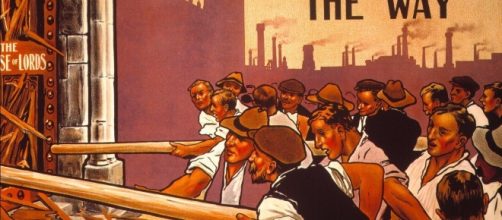The term, the precariat, has been around for a few years, but has not moved from the edges of intellectual thought into the mainstream. However, the failure to bring the term into the mainstream, and bring it into common usage and make it a ubiquitous term in policy debates, is a display of the lack of depth ingood thinkers and strategists in theLabour Party.
The emergence of the idea of a precariat
The Precariat is a term emergency out of social and economic analysts, and in some usage with academia and the media. However, it has not spread into the public consciousness, and is only used sporadically, even in those circles which do use the term.
The Precariat is a response to out-dated and largely irrelevant ideas of working-class, middle class; bourgeois, proletariat. In Sociology and economics, the concept of the precariat was developed to describe a social class that they had identified in contemporary society. Precariat is a portmanteau term,formedbycombiningthe wordsprecarious and proletariat.
Who are the precariat?
The Precariat economic (and usually, social) existence is precarious. It is an existence characterised by a lack of predictability and stability. The proletariat referred, primarily, to industrial workers who sold their labour. The working-class made up the majority of the population, as it included the proletariat, but in addition to the industrial workers, working in factories, the working-class were employed in wide-range of manual jobs e.g.
miners, cleaners etc.
The Precariat, by contrast, are not primarily involved in purely manual work. It is a wide and diverse group of people, who are characterised by lack of job security and intermittent work. This may involve peopleworking on "zero hours" contracts in shops and warehouses e.g. Sports' Direct, doing semi-manual work - work that is unskilled, as opposed to traditional heavy manual work. However, by and large, the precariat are employed in work that would be classed as the customer service / retail sector e.g. in cafes, call centres etc. However, the precariat does also include people who do professional work, and who are University educated, but are working freelance and precariously e.g.
freelance writers, freelance architects.
Socially, the precariat, are likelyhave an existence that lack predictability and security. For example, due to the precarious nature of their income, theyare likely to find getting a mortgage difficult, and likely to be part ofthe generation of renters.
The Precariat and Labour
Labour's policy wonks and think tanks are at fault for failing to take notice of, and popularise,the concept of the precariat.The Labour Party know that theycannot appeal to a notion of working-class solidarityand concepts such as the proletariat because such terms and ideas have slipped into history. No doubt,the precariat class will become a social/economic class that is an anachronistic as proletariat sounds today.
However, the precariat class is an identity that could be formed and moulded in 21st Century Britain. Labour are failing because they are notproducing a distinctivediscourse and language andare failing to producethe curve. They have the ability to shape the political landscape by bringing ideas into common currency, and the failure to mobilise the precariat seems to beopportunity that is being missed.

